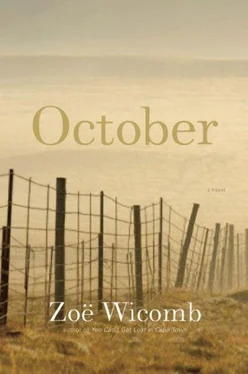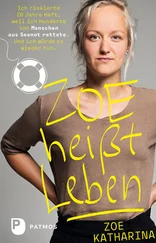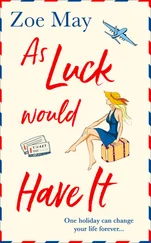Imagine, the child not knowing his own patch! Surely a child’s physical world should not be so circumscribed, especially here where you can see for miles across the veld. She smiles at Sylvie. We won’t be long, she says hurriedly, before the woman finds in the arcane field of motherhood a reason to object.
She takes Nicky’s hand. The little warm hand in her own flutters like a bird before he withdraws it. As soon as they are out of earshot language tumbles helter-skelter out of his mouth. It’s a very long journey but he’ll have no difficulty getting to the top of the hill; in fact, the goats usually go to the left of the clump of castor oil bushes so there’s sure to be a path, but he wonders if Auntie Missy will make it. He wonders about the kloof. Is it the case that a kloof comes like a thunderbolt from the top, splitting open the hill and mangling its foot, or is it rather that the kloof starts in the hill, slowly as a trickling baby stream, before it grows and claws out the earth? Mercia explains about erosion brought by the rare rain — as a child of the hill the kloof nevertheless mangles the parent’s foot. And they laugh.
What does Auntie Missy think they’ll find in the kloof? He’s heard there are caves, so would there be giant goggas, or snakes? The penny-bright eyes widen, his arms stretched out theatrically in measurement of a snake, and his mouth falls open at the terrible thought.
Well, she says, it’s only just October so there may be a few sand snakes about but they’re not poisonous; we’ll just keep out of their way. More likely that a troll has made his home in the kloof, but Nicky hasn’t heard of a troll, doesn’t know the story of the Billy Goats Gruff. She adapts it, turns the bridge and the green meadow into a cave where the goats want to shelter from fierce sunlight. If only she had brought him some books. It turns out that Nicky knows no fairy tales at all, has neither been told nor read stories. His mother has told him a couple of things about Uilspieël, but stories about a funny man doing stupid things do not please him. He hasn’t got to know any fairies because he’s been trapped indoors, Nicky explains. There was heavy rain a little while ago and he was not allowed out for days. Look, he shows her the swirls of washed sand, traces of small winter streams that feed into the kloof. They stoop over the striations, the tender ridges of sand, and walk on the shrub in order not to spoil the memory of water.
Mercia explains that most likely there’d be no more rain, that seasons come and go as the earth spins around the sun, that now it is spring in the Southern Hemisphere. Miraculously a verse from her childhood returns, in pristine Afrikaans, and he recites after her: Dit is die maand Oktober, / die mooiste, mooiste maand! / Dan is die dag so helder, / so groen is elke aand, / So blou en sonder wolke / die hemel heerlik bo, / So blomtuin-vol van kleure / die asvaal ou Karoo.
The child declaims like a preacher, then once he has mastered the verse he stops at the fourth line, tickled by the poet’s claim that the nights are green. So wit is elke aand, he improvises, and laughs and laughs. Might as well call it white. He knows lots more colors — red, yellow, black — but purple would be best: yes, and starting again he folds in the color: so pers is elke aand. Now it is his poem, he says, and looks up at Mercia for her agreement.
When Mercy loses her footing on a ridge, he tugs at her arm. Just as well he is there to rescue her; he doesn’t suppose that she does much exploring of the veld overseas.
There is something of an overhang ahead, barely a cave, but the child is enchanted. It is a ready-made house, look, a roof that will never leak, and is also shaded against the sun. He darts ahead of her, scooping up a handful of freshly dried goat droppings, nice and round and light as a feather. These goats, having killed the troll, have a good place to hide. Now he knows to follow the goats; they know a thing or two, and he fills a trouser pocket with the pellets. Then he whoops with excitement. The cave is deeper than it seemed, and ahead, in the farthest recess, is a clump of flowers, their starry white heads burning in the dark.
Chincherinchee, Mercia pronounces carefully, and explains how the rare rainwater coming down the hill — see, see the crack at the back of the cave — has found a basin in which to rest, how the roof delays evaporation so that the bulbs can swell and sprout. The child chuckles with delight at the plants, leafless, with pure, starlike flowers.
Yes, it is wonderful, incredible, she agrees, that is why the Greeks called it bird’s milk. Ornithogalum, she sounds the word, syllable by syllable. Mercia says that she likes to think of their South African name, tjienkerientjee, of which the English name is a transliteration, as a Khoe word for stars, but she doesn’t know. It is of course a lily, like kalkoentjies. Has his father shown him kalkoentjies in the veld? she asks. The child’s face clouds over, the fleshy mound of his chin twitches.
My daddy, he says hesitantly, is sleeping; he’s too tired to go to the veld.
Or that is what she thinks he says, since Afrikaans does not have the progressive to distinguish sleeps from is sleeping. Nicky adds, My daddy can get lots of turkeys from the shop. Big ones with tails that make so, and with outstretched arms he struts, drawing arcs above his head.
She laughs. No, not the bird, kalkoen. Kalkoentjie is also the name of a red lily you find in the veld. In spring.
•••
Jake would have been about seven years old when he came back from minding the goats with an armful of flaming flowers. Breathless, he had run all the way to present the treasure to Mummy. They were hiding, he said, in the shade of a cliff; he had never seen anything as wonderful in the dead old veld. There were of course the vygies with their little pink or yellow daisies dotted here and there across the gray bush, brazenly staring at the sun, but this — Nettie called them kalkoentjies — was a flower plant all by itself. A slender green stem grew straight out of the earth without proper leaves, he explained, sprouting bracts from which blood-red petals like little tongues leaned out, and look, the lower bracts had not yet opened up, their blood-tipped fists barely poking out from the green sheath.
There was no vase in their house; instead, their mother used a preserving jar so that the stems showed through the thick glass. Bent, but fresh and bright green. Jake was a clever boy, she said, to have found that treasure of kalkoentjies. She took one out of the water, held it up once again to admire the form. Elegant, she said, that’s what it is, and how heavenly it smells!
The image is indelible: Nettie bent over the flower in the dappled light, and the little Jake looking up adoringly to say after her: Elegant, that’s what it is.
Why are they called kalkoentjies? Mercia asked. It doesn’t sound elegant at all, and they look nothing like turkeys.
Nettie didn’t know. Ask no questions, hear no lies, but she carried on smiling, twirling the flower between her fingers. At the age of eleven Mercia had heard plenty of lies without asking any questions at all, but it was best to protect her mother from that.
When Nicholas came home he looked at the kalkoentjies sternly, as if the flowers had misbehaved. They are good, sweet-smelling flowers, he acknowledged, but they will die in this jar of brack water long before God has meant them to die. Jake started saying that there were bracts still unopened, that the flowers. . but the words dried up under their father’s fierce eyes as he reached for the aapstert behind the door, so that the children whimpered with fear. The goats, he hissed, your duty was to the goats, and you’ve let them down, just left them who knows where. You’ve shown yourself to be as unreliable as any Kliprand hotnot. A failure. I’ll have no failures in this family.
Читать дальше












